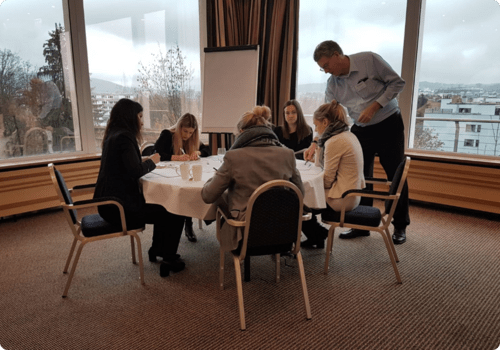By Maaike Addicks, MD, expert-trainer of The Medical Plan and Tactical Implementation and Strategic KOL Planning & Engagement courses.
Having an excellent Medical Science Liaison team is a critical success factor for any pharmaceutical company. MSLs are well-positioned to manage vital contacts in pharma’s markets, to share scientific knowledge with external stakeholders, to collect and generate Real-World Evidence (RWE) and to gain invaluable insights that feed into internal decision-making processes.
With the growing importance of Medical Affairs and the MSL team, the expectations that are placed on them have increased and become more complex. To enable your MSL team to work at the high level required of them, they need to be developed, trained and coached. This is especially the case for new, inexperienced MSLs who have been recruited for their deep scientific knowledge of the disease area but have no prior experience in the pharmaceutical industry. However, you will likely find that even your more experienced MSLs can still benefit greatly from receiving continuous training.
Equipping MSLs with essential competencies can be done using a combination of classroom or live online training, real-life coaching and sharing best practices. The following are core competencies and skills that MSLs can quickly acquire with a proper training programme, which will enhance their performance quite dramatically.
🔗 1. KOL management
The core business of the MSL is KOL management. KOL management is much more than just a bit of networking and hoping your likable personality will do the rest. The MSL needs to know how to assess, select and map stakeholders and how to set goals and make plans for them. They also need to know how to provide added value to each stakeholder so that the relationship is based on mutual interest instead of a one-way street (which usually leads to a dead end). Understanding the essentials of KOL management and sharing best practices with other MSLs will help them greatly in achieving superior KOL management.
🗣️ 2. Communication
One of the most important skills for an MSL is communication. To have an impact, MSLs need to be able to have meaningful conversations with HCPs, KOLs, patients, colleagues and other stakeholders, not only on the scientific properties of the medication, but also on present-day issues such as Value-Based Health Care or the changes in care paths. Being social is not enough. The MSL needs to master specific communication techniques in order to be able to tailor their discussions, and they can only acquire and maintain these skills by training and practice. Traditionally, we have spent a lot of time and effort teaching our sales team on commercial communication techniques. Now, it is time we invest in upskilling MSLs in communication techniques specific to their function.
💼 3. Business acumen, understanding pharma
The world of the pharmaceutical company is quite different from the academic world where the young MSL may come from. Understanding the workings and needs of the company and the different internal stakeholders will greatly improve the impact of the performance of the MSL. They will move faster towards the common goals of the company if they understand why they are important, and it will be easier for them to work together with their colleagues if they understand their needs and speak the same language.
🎯 4. Optimal execution
There are many tactics that are very specific to the trade of the MSL. The organisation of Advisory Boards, Continuous Medical Education, Symposia, but also the setup and management of studies, are some examples. Each of these tactics has its best practices, their timelines, checklists, their do’s and their don’ts. To ensure optimal and efficient execution, don’t let them find out for themselves, but give them a solid background so they know which tactic to use when, how to plan them, how to budget, whom to involve, and how to complete the tactic the best way they can.
In conclusion, finding and hiring an MSL with unique scientific knowledge and network takes quite some investment of time and money. It would be a waste of this effort if it is not followed up by solid training and coaching to unlock the full potential of the talented individual you have selected.
💬 “Make training and development of your MSL team a priority, not an afterthought."
WANT TO ORGANISE AN IN-COMPANY COURSE?

